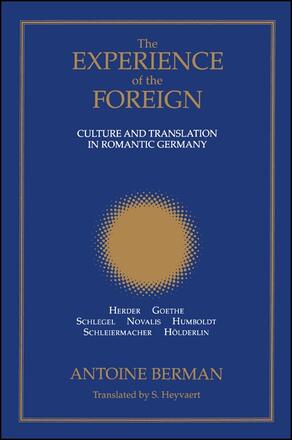
The Experience of the Foreign
Culture and Translation in Romantic Germany
Alternative formats available from:
Description
"This book is the first authoritative analysis of the theory of translation in German Romanticism. In a systematic study of Herder, Goethe, Schlegel, Novalis, Humboldt, Schleiermacher, and Hölderlin, Berman demonstrates the importance of the theory of translation for an understanding of German romantic culture, arguing that never before has the concept of translation been meditated in such detail and such depth. Indeed, fundamental questions that arise again today, such as the question concerning the proper versus the literal, of the Other to a given culture, the essence of the work of art, and of language, all these issues, and many more, are shown to have been premeditated in a most important manner by these German Romantics.
S. Heyvaert teaches Comparative Literature at the State University of New York at Binghamton.
Reviews
"Not only does this book familiarize the American public with a tradition that via the English Romantics has had a decisive impact on American thinking, but it is also a most important contribution to a variety of current theoretical problems." — Rodolphe Gasché, State University of New York at Buffalo
"In the period studied (from Herder to Hölderlin, from roughly the 1760s to the 1810s), the 'best and the brightest' of German literature and philosophy thought often and hard about translation and practiced it with sometimes remarkable and even permanent success. Berman brings out not only the continuity of the problem and the several different approaches to its 'solution' during these 50 or so years, but also the relations between German romantic theory and practice of translation and their predecessor Luther on the one hand, and our contemporary 'international' situation on the other. He makes the topic important to the history of ideas and to contemporary culture as well." — Timothy Bahti, The University of Michigan